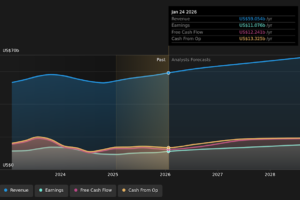
Millennials are a mirror that reflect many of society’s problems.
Or so claims a new report out Thursday from researchers at Stanford University and other institutions, who examined everything from suicide rates to health to homeownership among millennials in their 20s and 30s.
“Millennials are the first generation to experience in a full-throttled way the social and economic problems of our time … We can think of them as canaries in the coal mine who reveal just how toxic those problems are.”
“Millennials are the first generation to experience in a full-throttled way the social and economic problems of our time,” said sociology professor David Grusky, director of the Stanford Center on Poverty and Inequality. “These problems are steam-rolling a generation in a special way because they are bearing the brunt of factors like high inequality, declining economic prospects of high school dropouts, and a growing education gap,” he tells MarketWatch.
Grusky concludes: “We can think of them as canaries in the coal mine who reveal just how toxic those problems are.”
So what exactly did the researchers find? Here are some of the more interesting conclusions.
The need for higher education is greater than ever — even as it’s increasingly unaffordable
Millennials who get only a high-school diploma earn far less than their counterparts in the Gen X and baby boomer cohorts at the same age. “The median earnings for 25-year-old millennial men who have high school degrees or less were $29,000 per year, which is about $2,600 dollars less than Gen Xers and nearly $10,000 less than baby boomers received at the same age,” according to the researchers’ inflation-adjusted analysis of U.S. Census data from 1975 to 2018. (Meanwhile, those with a college degree actually earn a little bit more than their counterparts in the Gen X and boomer cohorts at the same age, the research revealed.)
“It’s not that going to college amounts to striking gold for most people,” Grusky said in a statement. “The big news is that if you don’t go to college you’re likely to do worse than ever.”
And this comes at a time when college costs are higher than ever. At public four-year schools, college tuition rose 213% from 1988 to 2018, and at private four-year schools 129%, CNBC found in an analysis. Sometimes these costs push people into attending for-profit colleges, which can be problematic, Grusky adds.
We’re dying too soon
Death rates among people 25 to 34 increased by upwards of 20% between 2008 and 2016, according to the research; this is mostly due to a rise in both suicides and drug overdoses.
This shocking statistic is part of what we know are a rapidly growing number of deaths of despair across the nation. Every day, about 130 people die from opioid overdoses, for example. And suicide rates rose in every single state but one from 1999 to 2016, the Washington Post reported.
This all means that for the first time in decades, America’s life expectancy is falling, in part because of a big increase in suicides and the rise of opioid overdose dealths. CDC Director Robert Redfield told The Wall Street Journal of this trend: “These sobering statistics are a wake-up call that we are losing too many Americans, too early and too often, to conditions that are preventable.”
Homeownership is on the decline
Owning a home used to be part of the American dream, but it’s increasingly out of reach for people. “Young millennials have lower rates of homeownership than Generation X, baby boomers, and the Silent Generation at comparable ages,” the researchers reveal. “We have to reach back to a generation born nearly a century ago — the Greatest Generation — to find homeownership rates lower than those found today among millennials.”
One big reason: A lack of affordability. Indeed, many millennials are crippled by student loan debt, which prevents them from affording a home. The Urban Institute found that your chances of homeownership decline by 15% when your student loan debt goes from $50,000 to $100,000. Combine that with job struggles left over from the Great Recession and home prices hitting record highs in many markets, and you can see why millennial homeownership rates are low.
This could be problematic for millennials, the researchers conclude, because “given the cumulative and compounding nature of wealth, early entry into homeownership is especially beneficial.”











